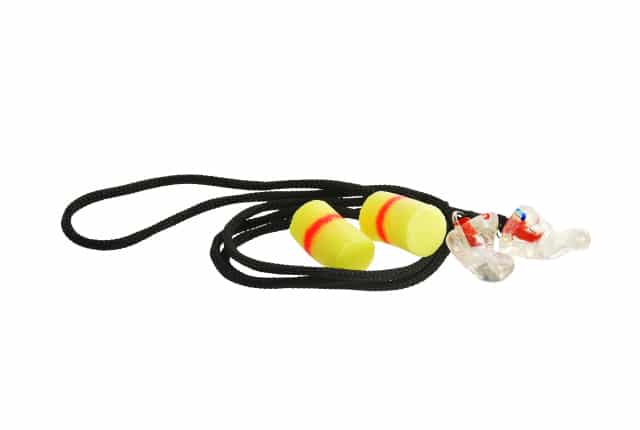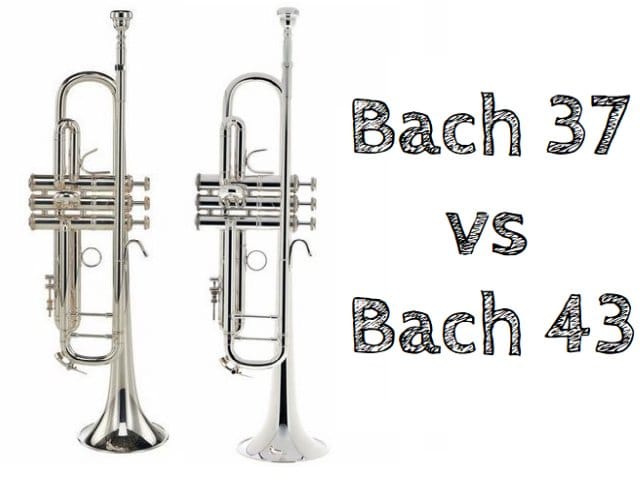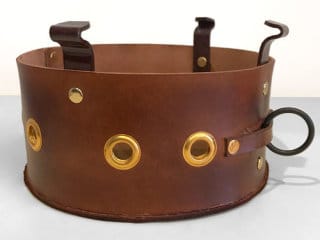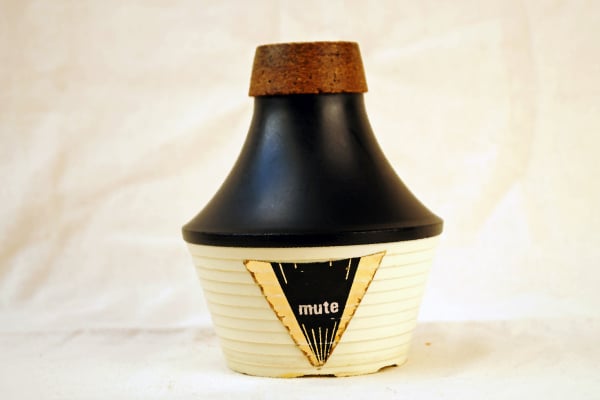Playing in an orchestra is great fun, but being around loud music a lot can damage your ears over time. One way to protect yourself is using ear plugs to decrease the volume, which is particularly worthwhile for trumpet or horn players who sit in the loud brass section. But which are the best earplugs to protect your ears from loud music?
Why you need to protect your ears
Compared to other instruments like a guitar or a flute, a trumpet is much louder. But can playing the trumpet damage your ears?
Unless you are playing with a practice mute or Silent Brass system, a trumpet has a volume between roughly 80 decibels and 120 decibels. According to the Centers for Disease Control And Prevention, it only takes a volume of above 70 dB for a prolonged period of time to cause damage to your hearing. So yes, playing the trumpet can damage your hearing. Therefore, it’s a good idea to wear earplugs to protect yourself.
What to look out for in trumpet earplugs
While earplugs for noise reduction try to block out as much of the sound as possible, earplugs for musicians ideally reduce the volume of the music without muffling or otherwise distorting the sound.
- Look for high fidelity earplugs
High fidelity earplugs (also called musician earplugs) reduce the volume of the sound evenly across all frequencies, but otherwise keep the sound clear and even. It’s therefore easy to play along with your instrument normally, even at the reduced volume.
- Pick earplugs that are comfortable for your ears
Apart from the quality of sound achieved with the earplugs, it’s also important to get comfortable plugs that fit well for you. Many people – myself included – don’t like the sensation of foam in their ears, so they might prefer silicone earplugs or earplugs made of thermoplastic rubber. (Another alternative, wax earplugs, is not ideal for trumpet players as they don’t reduce the volume evenly.)
Looking for a teacher?
Want to get lessons at the comfort of your own home? Check out the course Learn to Play the Trumpet: Beginner to Pro Made the Easy Way* on Udemy! (See their full trumpet course line-up here*!)
The Occlusion Effect
One thing to be aware of when using earplugs as a trumpet player is the occlusion effect. Playing a brass instrument causes a lot of vibration in the teeth and bones. These vibrations and sounds can usually escape through your ears when your ear canals is open.
If you use earplugs, the sound is reflected back to you and so your own playing and the sounds you make are perceived as even louder.
You might not perceive this effect as very distracting if you’re playing in a loud band or orchestra, but some individuals are more sensitive to it and will experience the effect more strongly than other people.
If you suffer from the occlusion effect and find it distracting, try out a few different types of earplugs and see if one type is better than another. Alternatively, invest a bit more money to get an audiologist to advise you and mold you a custom pair of earplugs.

The Best Earplugs For Trumpet Players
Here are three brands of earplugs that get recommended again and again among musicians thanks to their high-fidelity sound and comfortable in-ear experience.
Etymotic ER20
Sound quality: High fidelity.
Volume reduction: 20 decibels evenly.
The Etymotic ER20* or Etymotic ER20XS* are popular high-fidelity earplugs. They are reusable and made of thermoplastic elastomers.
While Etymotic also make custom earplugs fitted to your ear for around $200, the Etymotic ER20s are their generic model and are available in a standard size (Standard Fit) and in a large size (Large Fit).
Apart from their good sound, they are also quite discreet as the part sticking out of the ear is transparent, which is another advantage when playing in a band or orchestra setting.
Earasers
Sound quality: High fidelity.
Volume reduction: 13 decibels to 19 dB
The Earasers* are another high fidelity earplug. Made from silicone, they are also reusable and for smaller ears they even offer an extra small size.
Like the Etymotic or maybe even more so, they are almost invisible when worn thanks to the small transparent bit sticking out of your ears.
Are silicone earplugs better than foam earplugs?
Foam earplugs don’t have the high fidelity properties that silicone or other non-foam earplugs have. They can sound a bit muffled and distort the sound of the music around you. Yet, if you do prefer foam earplugs and don’t like silicone, or if non-foam earplugs are no option for you, it’s much better to use foam earplugs that muffle the sound a bit than not to use earplugs at all.
If you like foam earplugs, we previously would have recommended the Hearos*, but their ratings on Amazon suggest they’ve switched their production recently and the new type is not nearly as good. Try out a few brands – they don’t cost the earth – until you find earplugs you find comfortable enough to use regularly. There’s no point in buying cheap earplugs and not using them!
Are custom earplugs worth it?
If you need to use earplugs regularly, custom earplugs are definitely worth it. They can cost between $80 and $300 but will be fitted for your ears to be more comfortable and more efficient. It’s a small price to pay to keep your hearing intact and avoid hearing loss or tinnitus. Talk to an audiologist to get further information.
Related Articles:
- 9 Useful Tips Against Stage Fright and Dry Mouth
- Fascinating Trumpeter’s Trivia – Frequent Questions Answered
- My First Trumpet: Rent or Buy?
- Buying And Selling Used Trumpets – What You Should Know
- Trumpets and Lacquer – Everything You Need To Know
TrumpetHub.com is a participant of the Amazon Services LLC Associates Program, an affiliate advertising program. Links marked with an asterisk (*) are affiliate links. If you buy a product through an affiliate link, we will get a small commission without extra cost to you. This helps us earn an income off the free content we provide to you. Thank you for your support!








